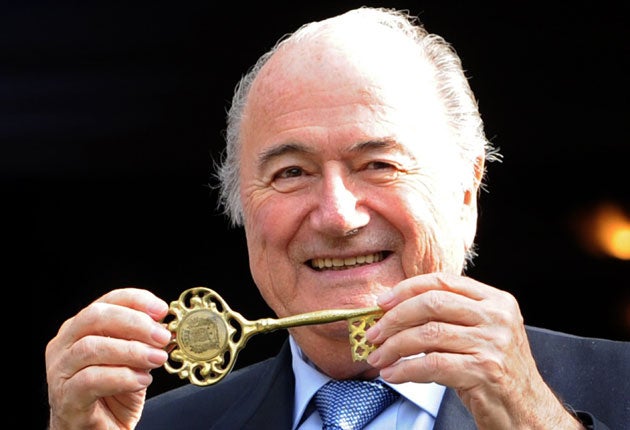"The World Cup and Olympics are good opportunities to get positive things done, but the interests behind them are not right. It's about making money in the fastest, most brutal way possible and this is allowed to happen by the international federations." So says Professor Christopher Gaffney, an outspoken critic of the way Rio's poor communities and favela dwellers, are being treated in the build-up to the two sporting mega-events.
Gaffney, an American visiting professor of urbanism at Rio's Fluminense Federal University, says 130 favelas have been marked for removal for the World Cup and Olympics, or associated transportation projects. "These projects are usually getting done for very narrow interests, mostly in real estate and big civil construction – motorways, airports etc. Only a handful of companies do these kinds of things in Brazil and their relationships with politicians are very cosy."
Gaffney said the authorities intentionally avoid collective negotiating. "This is done to fragment resistance. They negotiate family by family, so one family agrees to sell up, their home is demolished immediately and the value of the property next to it is lowered. Thus people are set against each other."
Transport plans are more often the motive for community relocations than stadiums, says Gaffney. "These erect large barriers in the city – concrete sluices cutting through communities, with high-speed buses flying down them. These projects tend to violate all statutes which are supposed to protect human rights, because they move people away to places where they know nobody, to houses which are not necessarily better than theirs and far from their jobs."
Many of these are large public housing projects in Rio's sprawling, poor north and west zones, where most residents from the affluent postcard settings of Zona Sul are afraid to go. "Many of these areas are under the control of militias [usually former or existing police, firemen and prison officers] and we have heard of cases of people arriving there and having to pay the militias 40,000 Brazilian Reals (£15,000) to stay in their new homes."
A conglomerate of social groups, NGOs and academics calling itself the People's Committee of the World Cup and Olympics Games, will march to the draw venue today to protest against the favela relocations, use of public money, role of big business and ticket costs.
Gaffney describes the heavily armed Police Pacification Units (UPPs) which have wrestled control of some favelas from drugs gangs "a necessary first step" adding that a greater sense of safety in the communities is a positive outcome. "But there should be equally massive investment in education and urbanisation. But the main thing was to provide the public spectacle of security for the outside world. UPPs do not go in quietly, they go in with heavy weaponry and are followed by media. These are invasions.
"You see a massive boom in property value around these areas and there's a clear relationship between securing urban space and opening consumer markets. In some cases cable television companies have gone in [to sell packages] an hour after the UPPs."
Another dissenting voice is that of Theresa Williamson, executive director of watchdog Catalytic Communities. "The World Cup and Olympics are increasing inequality in what is already a notoriously unequal city," she says. "Rio's favelas are not squalor-ridden slums, they are working-class neighbourhoods that have been built by residents over generations.
"The results are communities which now hold a strong housing stock, where residents access the jobs and schools and where they have built strong social networks on which they depend. The image passed on by Rio's governing class, that these communities are violent, poor and marginal and that their relocation is of no significant consequence – that it is even beneficial – is wrong."
Gaffney, a qualified football coach and author of a book about football stadiums in Rio and Buenos Aires, finds himself slightly conflicted. "I'm looking forward to the World Cup, but I'm not looking forward to ticket prices, getting between cities, the militarisation of urban space and the propaganda and commercialisation."

Join our commenting forum
Join thought-provoking conversations, follow other Independent readers and see their replies
0Comments